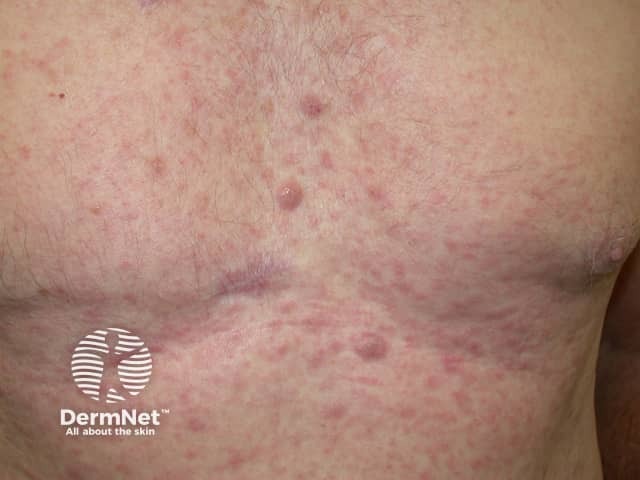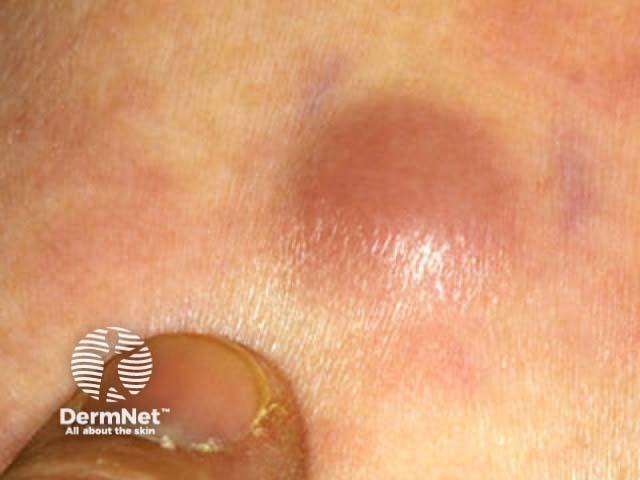Main menu
Common skin conditions

NEWS
Join DermNet PRO
Read more
Quick links
Lesions (cancerous) Systemic diseases
Author: Dr Amy Stanway, Dermatology Registrar, Nottingham, United Kingdom, 2005.
Introduction Monocytic leukaemia Malignant histiocytosis True histiocytic lymphoma Treatment
Malignant histiocytoses are cancerous conditions in which there is uncontrolled proliferation of the histiocyte cell. They are also known as Class III histocytoses.
Malignant histiocytoses include the following distinct diseases:
In all these conditions histiocytes spread throughout the body; usually affecting the liver, spleen, lymph nodes and bone marrow (inside the bone where the blood is made). Malignant histiocytoses may also affect other organs including the skin.
Malignant histiocytoses are diagnosed by blood tests, tests on bone marrow (bone marrow aspirate and biopsy) and tissue biopsies.
Monocytic leukaemia presents either with unexpected abnormalities found on blood tests or with generalised symptoms of fatigue, weight loss, easy bruising, recurrent infections, skin lumps (leukaemia cutis) and swelling of the gums (gingival hyperplasia).

Leukaemia cutis

Leukaemia cutis
Malignant histiocytosis presents with a sudden onset of generalised symptoms such as fever, sweats, weight loss and enlarged lymph glands (best felt in the neck, armpits and groin) and enlarged liver and spleen. Other cells in the blood may decrease resulting in anaemia, low platelets (cells involved in clotting of the blood) and low white cells (infection-fighting cells).
Half of affected people will have involvement of other organs – usually skin, bone or gut.
True histiocytic lymphoma presents with a localised lump that may be in the lymph glands or in another organ; usually the skin, bone or gut. It remains localised to one area for some time, and may grow quite big in that area. Later it may spread throughout the body, involving many organs as in malignant histiocytosis.
Most patients with these cancerous forms of histiocytosis respond to treatment with chemotherapy or radiotherapy. Malignant histiocytosis progresses very quickly and treatment must be started as early as possible. Some people will not respond to treatment and some people will die before the condition can be diagnosed and treated.